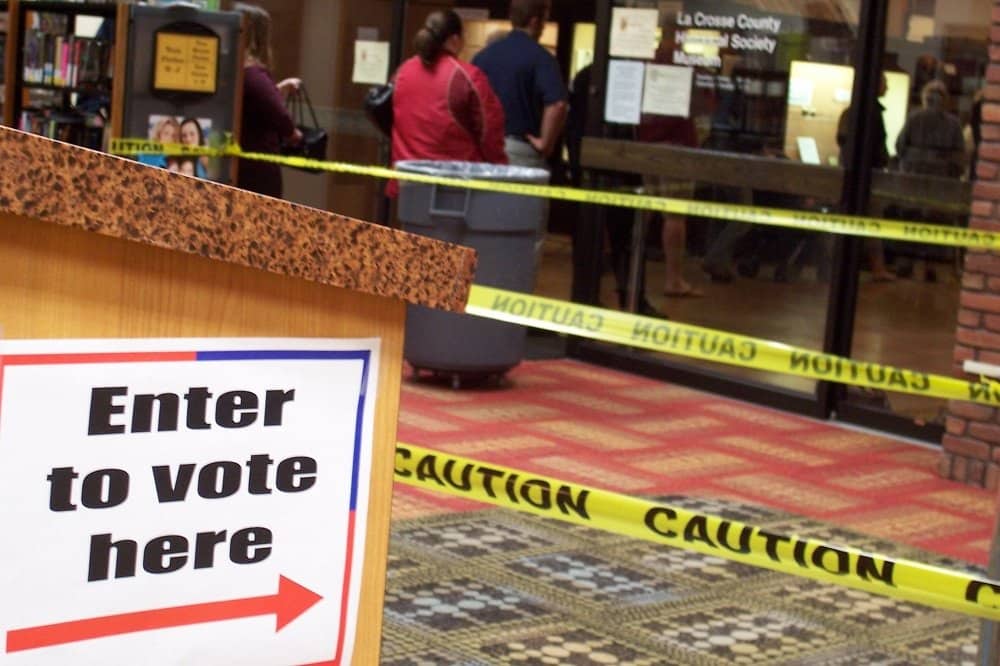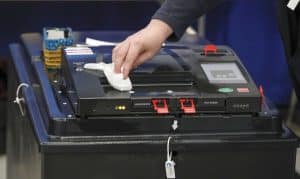MADISON, Wis. — Outgoing Wisconsin state Sen. Patty Schachtner, a full-time county medical examiner, earlier this year claimed to be “indefinitely confined,” receiving the special status accorded under state election law. The Democrat and her husband signed a statement claiming they were confined to their home “because of age, physical illness or infirmity” in seeking an absentee ballot to be automatically sent to their Somerset home.
It begs the question: If the lawmaker is “indefinitely confined,” how has she performed her duties as St. Croix County’s Medical Examiner these past six months?
Medical examiner doesn’t seem to be a remote gig. The St. Croix Medical Examiner’s Office’s mission is “to serve the public with trained medicolegal death investigators to ensure accurate and scientific investigations when determining cause and manner of death,” according to its website.
An official from the St. Croix Register of Deeds office told Empower Wisconsin that Schachtner has signed the county’s death certificates over the past several months — since she applied for indefinitely confined status in June. If the state senator was in the field performing death investigations, she certainly was not “indefinitely confined” under the meaning and intent of state statute. So, did the lawmaker break the law?
That question came up earlier this week.
I Can Do Everything In Person Except Vote
Conservative talk show host Dan O’Donnell, in an article for the MacIver Institute, opined that Schachtner “all but confirmed that she herself had committed election fraud” earlier this week when she, as one of Wisconsin’s 10 electors, cast her ballot for Joe Biden at the state Capitol.
“As she cast her electoral vote for Joe Biden in Madison (roughly 250 miles away from her home in Somerset) on Monday, Schachtner proved that she was in no way confined because of age, physical illness, infirmity, or physical disability. She managed to get to the Capitol just fine.”
In November, Schachtner lost her 10th Senate District re-election bid to state Rep. Rob Stafsholt. She wasn’t confined during the entire campaign. Just six days before the August primary, Schachtner spoke at the grand opening of a Kwik Trip convenience store in New Richmond, O’Donnell reported.
“So unconcerned was she about her health that during the middle of the COVID-19 pandemic she didn’t even wear a mask as she spoke,” he wrote. There’s more.
According to her official Facebook page, she went to Ted’s Pizza Palace in Menominee on Sept. 15 and joined State Treasurer Sarah Godlewski for an event in River Falls on Oct. 8, O’Donnell noted.
“She found time for leisure activities, too. On September 26th, she posted a picture of herself and her husband ‘going out and enjoy[ing] all the wonderful natural resources that our state has to offer.’” So much for confined.
New York Times Documents Her Activity Also
Schachtner didn’t answer Empower Wisconsin’s two phone messages on Thursday seeking comment. As for her St. Croix County position, a New York Times article last month sang the praises of a clairvoyant medical examiner who “took masks to funeral homes … dropped off body bags at nursing homes” and “rented a refrigerated truck to store even more bodies,” long before the pandemic surged as the weather turned colder.
The Times story painted a picture of very active medical examiner working against time, a deadly pandemic and — in usual New York Times elitism — the stupidity of local rural citizenry who wouldn’t mask up or stay home.
In another assertion that appears to conflict with Schachtner’s Facebook posts, the Times article claimed the candidate “did not hold campaign events or knock on doors, worried that it was not a safe practice.” The reporter added, “her Republican opponent won easily,” as if to suggest that if it wasn’t for that darn COVID …
One of the more concerning allegations of election fraud raised before and after Nov. 3 involves the liberal — in every sense of the word — use of indefinitely confined status. Clerks in liberal bastions Dane and Milwaukee counties in March advised anyone could use the threat of COVID-19 as a reason for being indefinitely confined. The Wisconsin Supreme Court ruled otherwise. But the damage was done.
As the MacIver Institute reported, Schachtner and roughly 178,000 other Wisconsinites applied for the special status, which excuses them from voter ID requirements. The MacIver Institute found that the number of indefinitely confined voters rose by a staggering 238 percent this year, and many were not actually confined to their homes. President Trump reportedly lost Wisconsin by a margin of 20,000 votes, well within this drastic expansion in potentially illegal voting.
“The Republican Party of Wisconsin tried to warn everyone that election laws would be abused last Spring, shortly after clerks illegally advised the use of indefinite confinement to dodge photo I.D. safeguards,” the state GOP said in a statement. “It’s clear now that many individuals – including powerful elected officials – abused that system when they weren’t indefinitely confined. WEC and the Legislature must look at addressing this before the next election.”
In an interview with Wispolitics.com earlier this week, Schachtner said she claimed the status because her husband is a cancer survivor and she was trying to be safe. She also claimed she’s received threats since O’Donnell reported on her use of the confinement status.
Schachtner also claimed ignorance, insisting she didn’t know voters who claim the status should notify their clerks once they no longer qualify for it. She insists she’s a “legal voter, pure and simple.”
In a unanimous decision this week, the state Supreme Court ruled individual electors are responsible for determining whether they are indefinitely confined. That determination, though, may only be based upon “age, physical illness or infirmity.” The court said a voter can’t use someone else’s age or illness to claim the status.
Schachtner clearly didn’t fit into the “indefinitely confined” parameters under state law. You can’t legally make a false statement to the municipal clerk, board of election commissioners, or any other election officials. Doing so is a felony, punishable by three and one-half years in prison and fines of up to $10,000. But the law only counts if it’s prosecuted.






